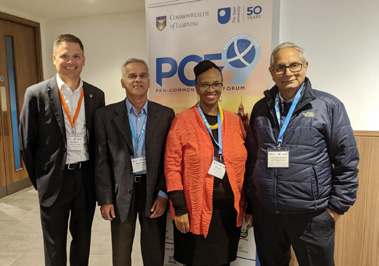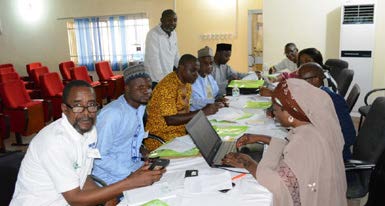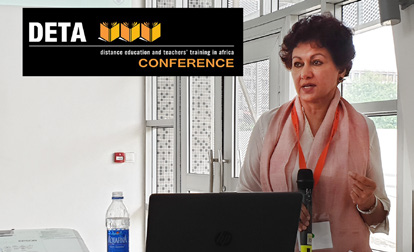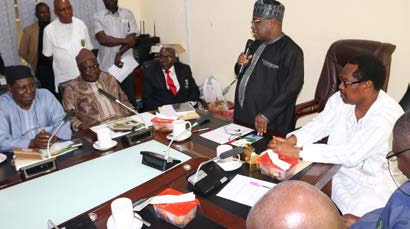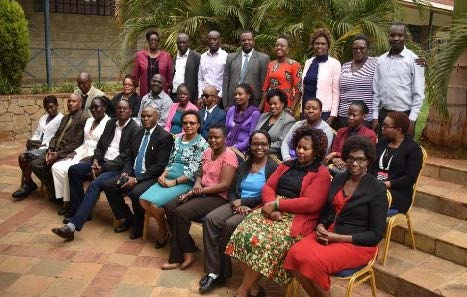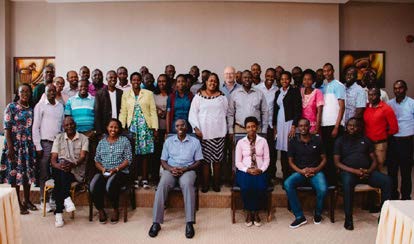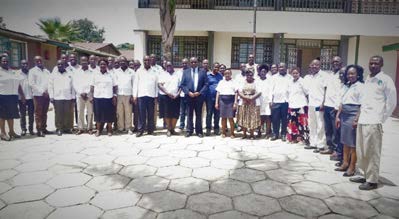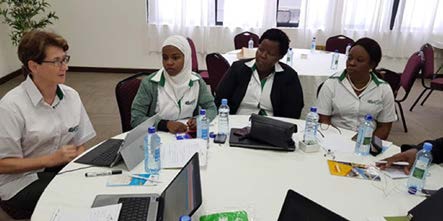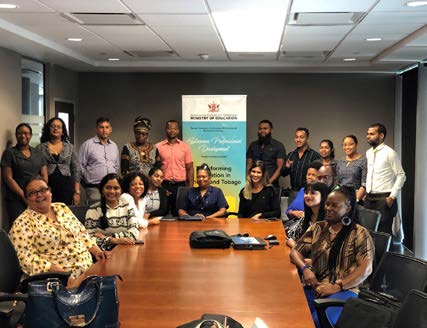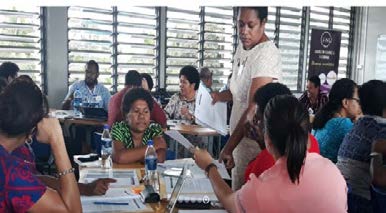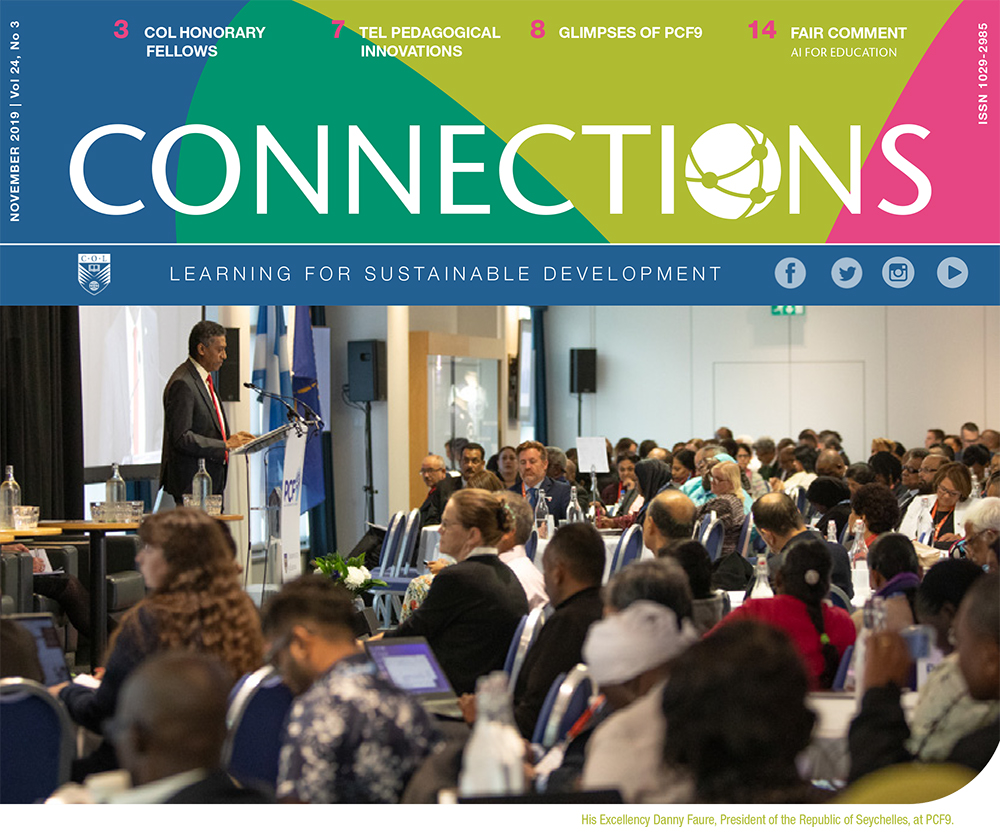
Download the digital version (PDF) from OAsis
Sign up to receive email updates from COL
COVER STORY
PCF9: Innovations for quality education and lifelong learning
“Lifelong learning is no longer an option, but an imperative for sustainable development”
Close to 550 policy makers, practitioners and thought leaders from across the Commonwealth and beyond came together at PCF9 to discuss the role of open and distance learning in meeting the challenges of the changing world. Themed “Innovations for Quality Education and Lifelong Learning,” the forum was held from 9 to 12 September in partnership with the UK’s Open University (OU) at the historic BT Murrayfield Stadium in Edinburgh, Scotland.
Celebrating 30 and 50 years of their respective commitments to education and learning, COL and OU deepened their partnership to identify ways to accelerate progress towards achieving Sustainable Development Goal 4 (SDG4).
The participation of His Excellency Danny Faure, President of the Republic of Seychelles, and eight education ministers underscored the forum’s importance.
Professor Asha Kanwar, COL President and CEO, in her opening remarks said: “Lifelong learning is no longer an option, but an imperative for sustainable development. We need to change the business-as-usual approach and the brick-and-mortar mindset if we want to achieve SDG4.”
Forum participants looked at effective ways to move from capacity to capability, share best practices and harness innovation for change – all with a view to providing employability skills to young people, offering a quality education to all regardless of circumstances, and identifying practical ways for technology to speed up progress.
PCF9 further strengthened COL’s leadership in open, distance and technology-enabled learning, demonstrated its convening power and increased its circle of partners. The Edinburgh Statement captures the aspirations of PCF9 participants and outlines a roadmap for further action and is available at www.pcf9.org. COL and OU will continue to profile actions and innovations that delegates have taken throughout the year ahead.
See Focus section for more on PCF9.
REGIONAL NEWS
PAN-COMMONWEALTH/GLOBAL
Supporting persons with disabilities
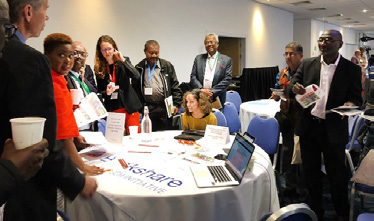
At the recent PCF9 Market Exchange, UNESCO Artist for Peace 2017 Ms Jane Constance demonstrated how assistive technology can increase access to print materials for her as a blind person and by extension to others with print disabilities. Jane described the critical role played by assistive technology in her life: reading brings knowledge, and knowledge helps us to rise above the ordinary.
With assistance from the Commonwealth of Learning, the Global Rainbow Foundation (a Mauritius-based NGO serving persons with disabilities) and Benetech (a non-profit technology company ), Jane showcased how the digital learning materials in COL’s VUSSC course “Starting Your Own Business” can be made accessible so that people with print disabilities such as blindness, low vision, cerebral palsy or dyslexia can benefit from the content.
JL4D seeks contributions
Contributions are invited for the Journal of Learning for Development, which focuses on innovations in learning – in particular, but not exclusively, open and distance learning and its role in development. Contributions can take the form of research articles, case studies, commentaries and reports from the field. Please visit the
journal’s website for more details and to submit work: www.jl4d.org
COL Chairs
A meeting was held with the three COL Chairs to discuss their initiatives in research and thought leadership. The premise of the meeting was to engage more collaboratively given the synergies in their work, particularly in the areas of artificial intelligence, OER, and re-conceptualising teaching practice in relation to the ubiquity of networked technologies. Photo caption (left to right): Dr Kirk Perris, Prof Mohamed Ally, Prof Mpine Makoe and Prof T.V. Prabhakar.
COL is pleased to announce the appointment of two additional COL Chairs:
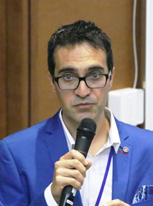 Professor George Veletsianos, School of Education and Technology at Royal Roads University (Canada), and
Professor George Veletsianos, School of Education and Technology at Royal Roads University (Canada), and
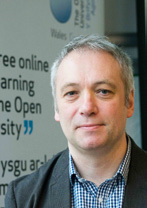 Professor Martin Weller, Institute of Educational Technology at The Open University (United Kingdom)
Professor Martin Weller, Institute of Educational Technology at The Open University (United Kingdom)
COL Chairs contribute to capacity building across the Commonwealth and enhance COL’s academic and intellectual presence in the fields of open and distance learning (ODL), open educational resources (OER), technology-enabled learning and learning for sustainable development.
Professor Veletsianos will research trends in flexible learning for under-represented groups, particularly women.
In collaboration with young researchers located around the world, Professor Weller will focus his work on developing open education practices (e.g., research guides and methodologies) to promote the uptake of OER.
Both Professor Veletsianos and Professor Weller are strong advocates and internationally renowned scholars in open education.
eLearning for International Organisations (eLIO)
Through an agreement with the United Nations Population Fund (UNFPA), COL’s eLIO initiative is administering an online, self-paced, virtual orientation programme for professional staff in country offices and headquarters. Two of the very first participants have shared their experiences.
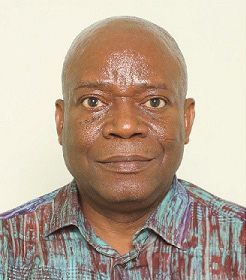 Roger Laly (UNFPA Chad) – “UNFPA’s Virtual Orientation programmes helped develop within me robust competencies in community resilience building through the ‘3E’ concept (Education, Empowerment and Employment). I was able to strategically redefine our approach to mainstreaming family planning in our women’s and girls’ empowerment programme
Roger Laly (UNFPA Chad) – “UNFPA’s Virtual Orientation programmes helped develop within me robust competencies in community resilience building through the ‘3E’ concept (Education, Empowerment and Employment). I was able to strategically redefine our approach to mainstreaming family planning in our women’s and girls’ empowerment programme
by applying innovative thinking and cultural sensitivity.”
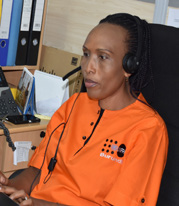 Rose Niyonizigiye (UNFPA Burundi) – “The memorable moment for me was the interactions with other colleagues on the discussion forums. It was a great opportunity to share knowledge and lessons learned. I now better appreciate the interconnections between operations and programmes in regular situations and in humanitarian contexts.”
Rose Niyonizigiye (UNFPA Burundi) – “The memorable moment for me was the interactions with other colleagues on the discussion forums. It was a great opportunity to share knowledge and lessons learned. I now better appreciate the interconnections between operations and programmes in regular situations and in humanitarian contexts.”
AFRICA
Enrolment in Green Teacher Nigeria crosses 11,000
Since the official launch of Green Teacher Nigeria one year ago, enrolment in this programme offered by the National Teachers’ Institute (NTI) in Kaduna has surpassed 11,000. These teachers will complete their courses having gained knowledge in environmental education as part of their training. COL has supported NTI in capacity building on pedagogies and technologies for effective delivery of this environmental education programme. The content has now been integrated into Nigeria’s National Certificate of Education 1 and 2 as part of the General Education Studies curriculum. Along with capacity- and skills-building workshops, COL has also provided support in designing open educational resources and engaging in ongoing review of the programme content.
Educating African learners in an era of crises
Professor Asha Kanwar delivered a keynote address at the eighth Distance Education and Teachers’ Training in Africa (DETA) Conference at the University of Lagos, Nigeria on 24 July 2019. In her address, “Educating the African Learner in an Era of Crises: What are the options?” Professor Kanwar explored five crises that impact education: climate change, migration and displacement, out-of-school youth, the “learning crises” and the challenges of pedagogy. She also provided an overview of the “African learner” and the ways in which the teaching community is responding to these crises. She closed the presentation with a description of some of COL’s contributions and the strategies that could help improve teacher education in Sub-Saharan Africa.
Meeting strengthens regional collaborations
On 18 September, the Regional Training and Research Institute for Distance and Open Learning (RETRIDOL) and the Vice Chancellor’s office of the National Open University of Nigeria (NOUN) co-hosted a meeting with the Economic Community of West African States (ECOWAS). The ECOWAS delegation of 13 representatives was led by the Director of the Education, Science and Culture division, Professor Abdoulaye Maga, and Ambassador Babatunde Nurudeen, Permanent Representative of Nigeria to ECOWAS. The meeting concluded with promises for further collaboration, along with a commitment to have ECOWAS staff trained at NOUN.
Towards inclusive communities in Kenya
As part of the community linkage strategy in the “Teacher Futures” model, COL supported a two-day workshop from 22 to 23 July 2019 at the Kenya Institute of Special Education in Nairobi. The workshop aimed at sensitising the participants on the role of community-based organisations in supporting inclusion both within and outside the school environment. The workshop brought together 44 delegates, with representation from the Ministry of Education, Teachers Service Commission, Kenya Institute of Curriculum Development and Kenya National Examinations Council. Also represented were several associations for the deaf, blind and physically disabled. The objective is to help teachers improve their practices and help learners with disabilities to achieve better outcomes.
School-based teacher development in Rwanda
The Ministry of Education and the Rwanda Education Board held a stakeholder forum from 16 to 17 July 2019 in Kigali, bringing together a total of 49 delegates from the education sector to contribute to the design of “Teacher Futures.” Over the last few years, Rwanda had made tremendous progress in education, the most recent of which was the move from skills to competency-based curricula in the basic education cycle and pre-service teacher education. COL is supporting a school-based teacher development programme enabled by technology.
Developing capacities
COL supported a workshop on Commonwealth Digital Education Leadership Training in Action (C-DELTA) at Kaimosi Friends University College (KAFUCO) in Kenya from 20 to 22 August 2019. KAFUCO adopted COL’s C-DELTA as a non-credit course to help all students become digital education leaders and lifelong learners. The purpose of the workshop was to enable teachers to develop their capacity as digital education leaders. The content focused on ways to develop digital education competencies, create digital identities, share digital materials and build a personal learning network for teachers to support students’ achievement and success.
Increased access to quality TVET
COL’s work in the Technical and Vocational Skills Development initiative has helped more than 100 African technical institutes build their capability in flexible and blended (FaB) learning over the last nine years. Institutional partners have reached an additional 30,000 learners through flexible approaches and blended classroom models. Knowledge sharing among colleagues, known as “cascade training,” has been a key element of the strategy. Eight individuals have taken cascade training a step further with a vision that extends beyond their own institutions to the whole of Africa. Together, they created the African Foundation for Quality e-Learning for TVET (AFQueT). This professional association of TVET practitioners aims to “build a community of practitioners striving to increase access to quality TVET programmes at low cost to all through open, distance and e-learning.”
ASIA
New mobile-based MOOC for farmers
On 1 October 2019, COL and its partners Vidiyal and Reddiarchatthiram Seed Growers Association, in India, launched a massive open online course (MOOC) on corporate literacy. The content has been adapted from original materials developed by India’s National Bank for Agriculture and Rural Development (NABARD). This course is meant for members of Farmer Producers Organisations, whose shareholders are mostly farmers with limited or no access to bankable assets. COL’s Lifelong Learning for Farmers initiative has been working with India-based partners and with NABARD over the last nine months to create a series of measures to build the capacity of these shareholders to access new finances and
credit from formal channels.
GIRLS Inspire: their voices
Aimed at providing schooling to girls and young women and skill them for livelihoods, GIRLS Inspire has now reached close to 74,500 individuals in Bangladesh, India, Mozambique, Pakistan, Sri Lanka and Tanzania. With support from Global Affairs Canada and the Department of Foreign Affairs and Trade, Australia, COL has brought education and training to remote and unreached communities, and it has positively impacted many lives and many destinies. This feat would have been impossible without the support of our partners on the ground.
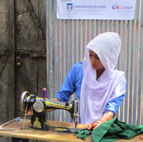 Nurnahar (Bangladesh): “I came to know about the project of COL under which skills training on various trades like fashion garments [is] provided. After completing the training, I do my online business through my mobile phone. Now my monthly income is around BDT 7,500 and I can afford all my expenses. My family members are very happy, and they are encouraging me to expand my business. I am grateful for [this chance] to be both economically and socially empowered as well as self-reliant.”
Nurnahar (Bangladesh): “I came to know about the project of COL under which skills training on various trades like fashion garments [is] provided. After completing the training, I do my online business through my mobile phone. Now my monthly income is around BDT 7,500 and I can afford all my expenses. My family members are very happy, and they are encouraging me to expand my business. I am grateful for [this chance] to be both economically and socially empowered as well as self-reliant.”
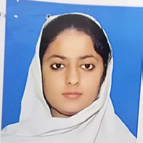 Khadija (Pakistan): “Getting enrolled in SPARC has been one of the major turning points in my life. If it hadn’t been for the skills training, I wouldn’t be where I am today. Who knows I might have gotten married by now. SPARC and GIRLS Inspire played a great role in changing my life in the best way possible. Running my own beauty salon has always been my dream, and today living this life is a milestone achieved. I hope they keep influencing other girls’ lives by providing them with great opportunities and empowering them to contribute towards progress of the nation.”
Khadija (Pakistan): “Getting enrolled in SPARC has been one of the major turning points in my life. If it hadn’t been for the skills training, I wouldn’t be where I am today. Who knows I might have gotten married by now. SPARC and GIRLS Inspire played a great role in changing my life in the best way possible. Running my own beauty salon has always been my dream, and today living this life is a milestone achieved. I hope they keep influencing other girls’ lives by providing them with great opportunities and empowering them to contribute towards progress of the nation.”
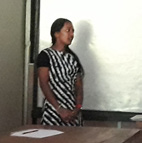 MaIrenu (Sri Lanka): “I joined the GIRLS Inspire project with the Women’s Development Centre – Head Office in Kandy, Sri Lanka in May 2019. The training I received on the app development is very helpful in providing support to the team with the uploading of registration data of women and girls to Survey Gizmo. I plan to sit for the GCE O/L examination next year and to complete the Mathematics course so that I can qualify for higher education. The GIRLS Inspire motivation sessions made me see that my life has many avenues in the future.”
MaIrenu (Sri Lanka): “I joined the GIRLS Inspire project with the Women’s Development Centre – Head Office in Kandy, Sri Lanka in May 2019. The training I received on the app development is very helpful in providing support to the team with the uploading of registration data of women and girls to Survey Gizmo. I plan to sit for the GCE O/L examination next year and to complete the Mathematics course so that I can qualify for higher education. The GIRLS Inspire motivation sessions made me see that my life has many avenues in the future.”
CARIBBEAN & AMERICAS
Trinidad & Tobago team reflect on open schooling content development
During a recent trip to the Caribbean, Dr Tony Mays, COL’s Education Specialist: Open Schooling met with 20 representatives from the Ministry of Education, Trinidad and Tobago, who had been involved in developing open schooling content. Key takeaways for participants in this process included learning about creating interactive and multimedia content and using software they had formerly not known about, as well as getting familiar with OER and copyright issues.
PACIFIC
Pacific Regional Workshop
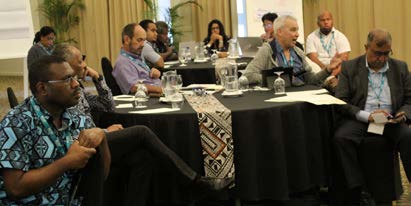
A Pacific regional workshop to identify priority activities in skills development was organised in Fiji from 13 to 15 August by COL in partnership with the Pacific Centre for Flexible & Open Learning for Development (PACFOLD) and the Ministry of Foreign Affairs and Trade (MFAT), New Zealand. Participants from seven countries in the region joined the workshop and developed activity proposals. The focus was on resilience education, youth and gender. Mr Jone Nemani, Permanent Secretary, Ministry of Youth and Sports, Government of Fiji, and Mr Tom Haig, Senior Advisor, MFAT, New Zealand participated in this workshop, which was convened by Dr Som Naidu, Director of PACFOLD. Dr V. Balaji, Vice President, represented COL at this event, which was followed up by a workshop on the Pacific during PCF9, where ministers and senior officials endorsed the activity plans.
TEL Community of Practice
In collaboration with Fiji National University (FNU), COL launched the Technology-Enabled Learning (TEL) Community of Practice (CoP) platform to develop a network of teachers across the Commonwealth who are adopting technology-enabled and blended learning practices in their teaching. Teachers from 12 institutions that have implemented TEL with the support of COL are currently on the platform. It is open for any teacher to join and actively connect, create and celebrate TEL success in their institution. The goal of the CoP is to empower teachers to effectively use TEL by providing a platform to discuss, debate and collaborate to solve problems and undertake action research for improving the quality of their students’ learning.
TOP 5
Top 5 TEL Pedagogical Innovations
Technology-enabled learning (TEL) is opening doors to quality learning opportunities that are unprecedented in human history. Learners and educators are making use of new tools and resources to create engaging, effective and efficient learning environments that foster curiosity, creativity and collaboration for sustainable learning. A recent COL publication entitled Pedagogical Innovations for Technology-Enabled Learning highlights the following five innovations:
- Flipped classroom approach – A flipped classroom approach is possible when learners have access to digital devices and the Internet at home. Instead of receiving instruction in the classroom and being asked to put their learning into practice as homework, the process is reversed.
- Place-based learning – Place-based learning takes students outside the classroom, providing opportunities to spark their curiosity and investigate their environment. It offers a way for them to make connections between the ideas in their textbooks and the practical issues and challenges that their local communities face.
- Citizen science – Citizen science involves members of the public in inquiry and the discovery of new scientific knowledge. These projects use the scientific method, including systematic observation and the formulation and testing of hypotheses – all made possible due to the availability of suitable technologies.
- Computational thinking – Computational thinking is a method of structuring any problem to make it easier to solve. This way of thinking can be taught as part of science, mathematics or design technology or in other settings. It also prepares lifelong learners by developing a set of skills that they will use in other subject areas.
- Bring your own device (BYOD) – Bring your own device leverages students’ access to mobile devices to increase learning opportunities. Learners can use their own devices to access a wide range of resources, personalise learning, collaborate with others, access expert opinions and share their work with a wide audience.
The full text of Pedagogical Innovations for TEL is available at: http://hdl.handle.net/11599/3201
FOCUS
Glimpses of PCF9
PCF9 was held in Edinburgh, Scotland from 9 to 12 September 2019. The four days of insightful keynote addresses, engaging plenary panels, informative parallel sessions, and other programme highlights provided a unique opportunity to bridge traditional divides between borders and sectors.
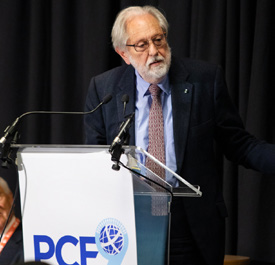 In a thought-provoking Asa Briggs Lecture, Lord Puttnam of Queensgate advised participants that “the time for action is now… as the vulnerable are becoming more vulnerable.”
In a thought-provoking Asa Briggs Lecture, Lord Puttnam of Queensgate advised participants that “the time for action is now… as the vulnerable are becoming more vulnerable.”
Keynote Speakers
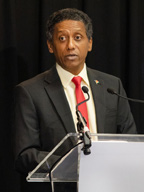 |
His Excellency Danny Faure, President of the Republic of Seychelles, spoke about empowering youth – our common wealth. |
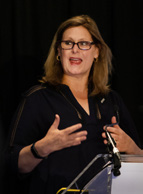 |
Ms Sarah Brown, Executive Chair, Global Business Coalition for Education, stressed the need for increased financing for education to meet the targets of SDG4. |
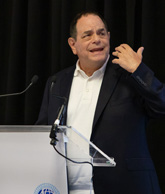 |
Mr Marc Prensky, Founder of the Global Future Education Foundation, said that achievement benefits only the achiever while accomplishment makes the world better. |
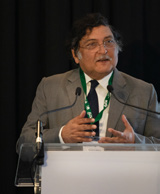 |
Dr Sugata Mitra, Professor Emeritus, Newcastle University, stressed that comprehension, |
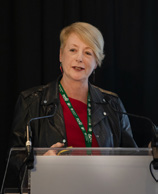 |
Professor Rose Luckin, UCL Knowledge Lab, believes that we need to think how to help people understand Artificial Intelligence, so that they are judi |


